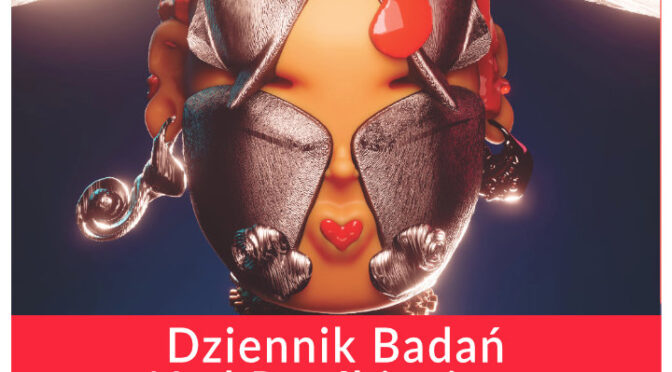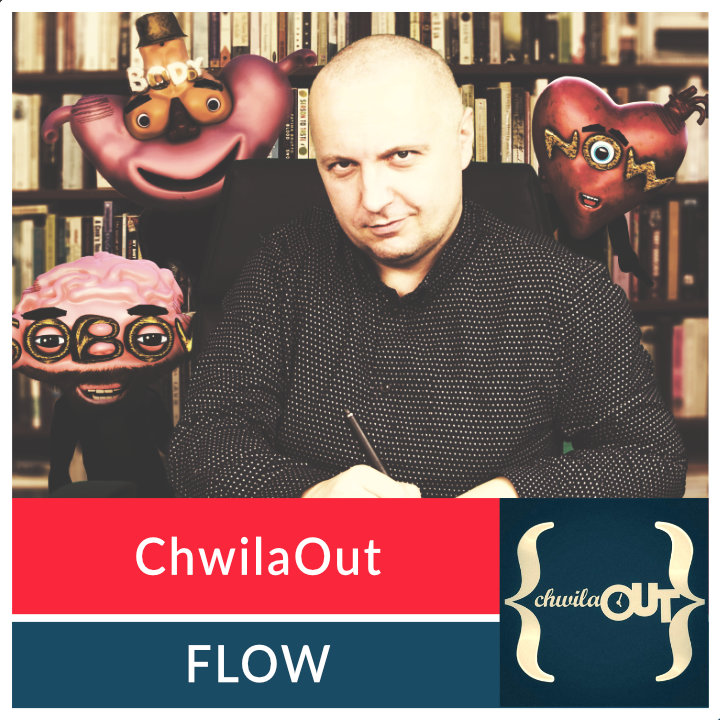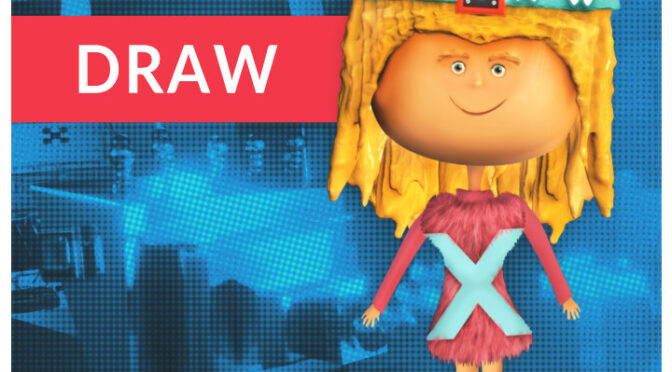

The seemingly values or opportunities that I place in the idea of “ChwilaOut” may seem lofty and inflated, but my intuition tells me that it is not.
The road to ChwilaOut can lead through various activities, but I will try to support those “curious” in reaching this state, based on my experience, starting with sculpting, then digital drawing. The Blender 3D I use for this gives a lot of possibilities and it is worth learning how to move freely in it from elementary school.
The answer to the search for meaning, getting to know yourself, being with yourself and working together. It makes you think about the value of the present moment, joy, creation, passion, creativity and using your hidden potential, turning your thinking on and off. It teaches humility, patience and acceptance.
The topic hit me at the beginning of 2018 after the course and experience in sculpting in Blender 3D, during one of the next evening with the muse, I felt it. I didn’t think about what I was pressing anymore, the internal dialogue died down, I was 100% present. Just me, a graphics tablet, Blender 3D, and sculpting mode, and things happen by themselves without thought. Such a state of FLOW. I came across this topic in “The Power of Now” by Eckhart Tolle, also in Mateusz Grzesiak’s works in “Egorcyzmy” and “Success and Change”. Kind of like the mind has shut down. In this state, you do faster, more, and the feeling is worth it. I started looking for more about what I was experiencing, what kind of emotional state I was dealing with.
What is that feeling? (some theory)
In Daniel Goleman’s “Emotional Intelligence” it is described as follows:
FLOW – the neurobiology of excellence
The composer describes the moments when his work is best for him:
“You are in such a state of ecstasy that you almost do not exist. It has happened to me many times. My hands don’t seem to belong to me; I have nothing to do with what is happening. I just sit there, watching it all in awe. and delight. It just flows out of me by itself. “
His description is surprisingly similar to the descriptions given by hundreds of different men and women – mountaineers, chess masters, surgeons, basketball players, engineers, directors, even paperwork officials – when they talk about times when they have excelled themselves in some favorite field. This condition was named by Mihaly Csikszentmihaly, a psychologist at the University of Chicago, who had collected such descriptions of peak achievements for twenty years, as “flow”. This state of elation is well known to athletes. Fantastic results are achieved then, crowds of viewers and rivals disappear, obscured by a delightful, permanent fusion into one with the desired goal.
The ability to achieve flow state is the pinnacle of emotional intelligence; flow is perhaps the most perfect form of harnessing emotions and harnessing them in the service of achievements in work and study. In this state, emotions are not only restrained and captured in one stream, but also positive, aroused and focused on the task at the moment. To be trapped in depression or anxiety is to block your own path to becoming winged. After all, winging (or a slightly weaker microswing) is a state that each of us achieves from time to time, especially when he rises to the peak of his abilities or goes beyond what he has done so far. Perhaps the best-known manifestation of this is elation, ecstatic love, in which two people fuse into one harmonious whole. It is a wonderful experience – the characteristic sign of being winged is a feeling of spontaneous joy, even intoxication. Since we feel great in this state, we are eager to strive for it. It is a state in which we are completely absorbed in what we are doing, in which our attention is completely focused on the task at hand, and consciousness is completely subordinated to action. In fact, too much reflection on what happens to us at times like this – the mere thought of “I’m doing this brilliantly” – can throw us out of this state. Our attention is so focused that the consciousness reaches only the impressions from a narrow segment of the perception of the surrounding reality, directly related to the task being performed at the moment, we even lose the sense of time and space.
FLOW is a state in which we forget about everything except what we are doing. It is therefore the complete opposite of thought-chewing, anxiety and worry.
“Since FLOW occurs in a sphere in which action requires us to demonstrate our full abilities, as we improve our skills, we need more and more challenges to get into this state. If the task is too simple it causes boredom, if too difficult , then the result is not winging, but anxiety. It could be argued that to achieve mastery in some field, feeling winged, that to be in something – playing the violin, dancing or cutting genes – motivates us – at least in part – the willingness to remain winged, which we achieve by doing this. And in fact, by researching two hundred artists eighteen years after their graduation, Csikszentmihalyi found that the best painters were those who, during their studies, painted for their own sake the pleasure it brought them. Most of those who chose to study art, dreaming of fame and fortune, after graduating, she quit practicing this profession. Csikszentmihalyi concludes: “Painters must want to paint above all else. If the artist, standing in front of the easel, begins to wonder how much he will sell the painting for or what the critics will think about it, he will not be able to create anything original. Creative achievement depends on keeping your mind absolutely focused on what you are doing.
Winging is a prerequisite for mastering proficiency not only in every profession, but also in learning. Students who can achieve this state learn better, regardless of their intellectual potential as measured by tests. Chicago maths and science high school students, who belonged to the five percent best math test-scoring group, were divided by math teachers into those who assessed them as high achievers and those who did not achieve high achievements. They then followed how they spent their time: each student received a buzzer that signaled at random times that they were to write down what they were doing and what mood they were in. Not surprisingly, low-achievement students spend only about fifteen hours a week studying at home, and high-achieving students twenty-seven hours. The former spent most of their non-study time talking and playing with friends and family. “
“Instead of trotting around nervously and constantly thinking about what worries or worries us, we completely lose our self-awareness, forgetting about such” small “matters as health, paying bills and even livelihoods. o tasks require increased, not diminished, cortical activity, but the key to winging is that we experience it only when the task at hand is at the peak of our ability, including well-mastered and practiced skills with which the circuits nervous work most effectively.
Attention – concentration that is fueled by anxiety or worry -. causes increased activity of the cerebral cortex. The state of FLOW and optimal functioning seems to be the period of the greatest efficiency of the cerebral cortex, because its functioning consumes a minimum amount of mental energy. Perhaps this can be reasonably explained by skill in carrying out activities during which we experience winging – masterful mastery of individual stages of the implementation of a given task, which may well be something that requires physical effort, such as mountain climbing, or something that requires mental effort (for example writing a program computer) means the brain can do them more efficiently. Well-practiced activities require much less effort from the brain than those that are just learning or still too difficult for us. Likewise, we are dealing with reduced efficiency of exercise and the lack of precision in the operation of the cerebral cortex, as a result of which the areas of the cerebral cortex are stimulated, where the work is not needed to perform a given task, when the brain is working less efficiently due to fatigue or nervousness, as happens under the the end of a long, stressful day. We experience this state when we feel distracted and cannot focus our attention on anything. The same thing happens when we are bored. However, when the brain works most efficiently, i.e. in the winged state, the relevant areas of it adapt precisely to the requirements of the task ahead. Then even hard work may seem to us a respite or entertainment, and not a labor consuming all our strength. “
“
(this is an excerpt from the book “Emotional Intelligence” by Daniel Goleman, which, despite the fact that it was published over 20 years ago, is a classic and quite a lot of information about it in it.)
On facebook on fanpage ChwilaOut >>>will take you after clicking the link<<<



